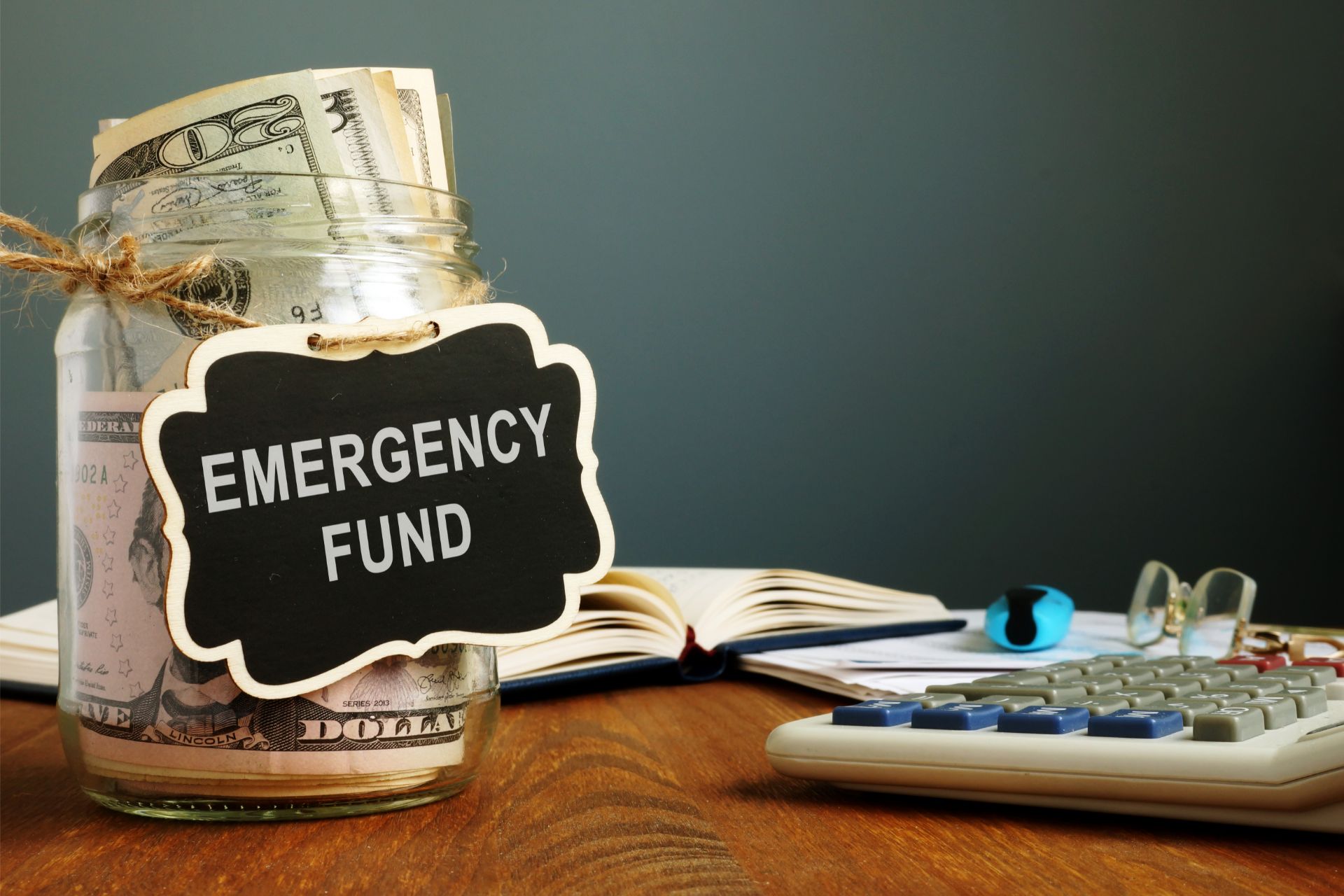
The things we do and the outcome of our lives are a reflection of the habits we have developed and adopted over time. This clearly means that you have to painstakingly examine your habits and ditch the bad ones so they don’t jeopardize your life.
When it comes to financial management, possessing the best money habits is all you need to succeed. You can certainly avoid consequential mistakes and usher yourself into a prosperous future when you handle your personal finance the right way.
This post will provide insight into the specific day-to-day financial activities you can start doing right now to improve your finances. Although these habits may take time to build, the impact they have on your life is lasting. Let’s discuss them!
What Are Good Money Habits?
Good money habits are positive ways you typically manage your money. Saving, cutting down on costs, and investing in the future are perfect examples of good financial habits that should become a part of you today.
Why Should You Develop Good Money Habits
Building good habits around your finances is paramount. You can avoid financial constraints and achieve your goals in time when you possess the right financial habits. Here are more specific reasons you should prioritize building the best money habits:
1. Having Good Money Habits Breeds Financial Stability
Financial stability is the ultimate goal we all want. We desire a life where we don’t have to worry about money.
The truth is that this dream is possible. You can attain financial freedom even if you weren’t born into wealth in the first place. However, your actions will determine if you become financially free or not.
How do you spend your money? Are you often motivated to save? Do you build a monthly budget to plan for your expenses? These are good money habits to build, and if you stick to them, financial stability will be attainable.
2. Having Good Money Habits Will Secure Your Future
Do you sometimes think about what your financial situation will look like in the next 5—10 years? You should think about it all the time. I’m not implying that you should constantly worry about not being financially successful in the future. What you should do instead is envision a future where you won’t have to bug your mind about financial issues like debt, late fees, or failed retirement.
If you want to secure your future and prevent any possible financial crisis, start acting now by practicing the best money habits. You definitely want to retire early, send your kids to college, and own a home. You can’t afford to start making the wrong choices concerning your finances.
3. Having Good Money Habits Largely Contributes To Peace Of Mind
Building the best money habits to improve your finances will help you sleep better at night.
I remember when I had this huge credit card debt to pay off. I couldn’t even get excited about receiving my paycheck every month since I spent a lot of it to pay down my balance. This continued for a while until I developed frugal habits—cutting down on my expenses and adjusting to a much cheaper lifestyle.
I won’t tell you it’s easy, but it did transform my finances. When I became debt-free, I realized how long I had deprived myself of my peace of mind. I stopped panicking about monthly debt payments or late fees.
It’s time you put a stop to the anxiety that threatens your mental health by learning better ways to manage your money efficiently.

12 Best Money Habits To Transform Your Finances
Are you ready to make better financial choices moving forward? Here are several best money habits to start right now:
1. Examine Your Financial Situation (Cashflow Mainly)

Understanding your specific financial situation and where your money is going is the first step in stabilizing your finances. Let’s start with your monthly take-home salary. Next, determine the amount of money you spend on necessities like groceries, rent or a mortgage, childcare, transportation, and insurance.
Then total up the amount you spent on extras. These are expenses like the cup of coffee you grab on your way to work, the takeout you order from restaurants, or the memberships you hold for services you never use. For a few months, keep tabs on these purchases to have a sense of where your spending patterns might need some adjustment.
Lastly, consider the amount you pay each month to pay down debt, including credit card, auto, and student loan debt. Be mindful of the interest rate you incur as well as the required minimum payments each month. Take note of the amount due, the payments, and the date of settlement. As you review and update this information a few times a year, you can understand your financial picture better.
2. Set Up A Budget

It is simpler to create a budget after you have a thorough understanding of your financial situation. Aside from organizing your expenses and maybe curbing your spending, building a monthly budget can show you areas where you might be able to make savings.
Although there are plenty of strategies and methods to help budget your income every month, you should consider applying the 50-30-20 rule. This is a well-known budget strategy used by the average American because it makes it easier for one to strike a balance between spending for enjoyment and fun and long-term savings and necessities.
Moreover, It doesn’t matter what tool you use for budgeting. Consistently keeping track of your expenditures is what’s important.
3. Create An Emergency Fund

Stashing some cash in an emergency fund is one of the best money habits to adopt. Your finances could be thrown off course very fast by an unforeseen expense. What if you have to urgently pay for auto repair or a hospital bill? If this is the case, you might have to use a credit card or make shorter-term savings in order to pay for the expense.
I will advise you create an emergency fund with three to six months’ worth of living expenses to prevent this. If that amount of money seems excessive, think about starting with a lesser sum, like $1,000.
It’s critical to allocate money in your budget for an emergency fund, regardless of size. Every month, try to add to it. When you do this, you put yourself in a good position in case an unforeseen expense arises.
4. Automate Savings
Having long-term goals like early retirement, a family vacation, or a down payment for a home shows how much you care about your well-being. However, achieving these goals may be difficult when your day-to-day expenses are constantly interfering. This is why you must make steady savings a habit by keeping the money out of sight. This is where automation comes in.
Automated savings involves setting up recurring transfers from your checking account to a savings account, ensuring a consistent contribution towards your financial goals without regular manual intervention. You can go to sleep while funds are deposited in a separate savings account.
5. Pay Down Debt
Although borrowing money can be helpful, you should aim to keep debt out of your life. When you can, try to make it a habit to pay off your debt with more than the minimal amount due. You might be able to reduce interest costs by paying off debt sooner with even a little increase.
Consider paying off debt with higher interest rates first as well. Consolidating this debt into a personal loan with a reduced interest rate could be beneficial. For instance, you can consolidate many higher-rate accounts into a single loan with a single, fixed monthly payment when you take out a personal loan from Discover®.
Besides, if you need some practical steps on how to become debt-free, check out this post that talks about 10 helpful strategies to pay off debt faster.
6. Avoid Late Payments
Avoiding late payments is one of the best money habits that will save you from spending unnecessarily. For example, when you fail to make your debt payments on time, late fees accumulate. It means at the end of the day, you’ll have to spend extra money clearing the balance.
You must establish a regular bill-paying routine to help prevent this from happening. Also, you might want to check if your lenders provide an automated bill-paying option. You won’t overlook a payment if it’s automated. Just don’t forget to factor in any of these payments when creating your budget.
On the other hand, set up recurring calendar entries for your bills if you would rather make the payments manually. You may choose to make one or two bill payments per month. Make sure to give the money enough time to reach your accounts by allowing enough days before your due dates.
Bear in mind that making timely bill payments is a fantastic method to avoid incurring late fees. Plus, it can contribute to helping you build a healthy credit score.
7. Review Insurance Coverage Each Year
Over time, it’s possible that your insurance needs will change. Because of this, it’s a good idea to check that you have the appropriate coverage for your circumstances by reviewing your insurance policy at least once a year.
You may have life, health, and house (homeowners or rental) insurance, depending on your needs. It is important to make sure you have the right coverage if your situation changes, such as when you relocate, get married, or have a kid. Don’t forget to evaluate your health insurance as well.
8. Live Within Your Means

One of the best money habits for financial success is to live within your means. This means you have to make sure that you don’t incur expenses above your income.
For example, if you earn $4,500 every month, you shouldn’t rent an apartment that costs $2,500. That’s more than half of your income. If you try to keep up with this lifestyle, you’ll find yourself in a debt trap very quickly.
So, it’s best you gain control of your cash flow by curbing your spending to fit your income. This will allow you to save money every month and reach your goals sooner.
9. Plan For Retirement

It’s best to start saving for retirement as soon as possible. It’s easy to assume that retirement is far off but don’t let that deter you from planning early.
Early retirement savings is crucial if you want to take advantage of compound interest, which lets you earn interest on the interest you accumulate over time. Besides, if your employer offers a 401(k) plan, don’t hesitate to seize the opportunity. Register sooner to benefit from these automatic savings.
You may receive every dollar your company is prepared to contribute if you make the most of your employer-matched contributions.
10. Take Advantage Of Your Employer’s Benefit Plan
Some employers offer more than just 401(k) retirement plans. Carefully examine the benefits package employees are entitled to at your company. You don’t want to miss out on some special perks. This benefit plan may include:
Employer-sponsored life and disability insurance: Compared to purchasing these insurance policies individually, your employer’s group plans may save you a lot of money.
Employer Health Savings Account (HSA): Certain employers will match your payments to an HSA up to a predetermined amount if you qualify. Your donations are text-deferred.
Employer Legal Services: Check if legal services are provided for employees by the company. If you have access to this benefit, then use it to reduce the cost of legal fees if you ever need estate planning papers made, such as trusts or wills.
11. Utilize Tax Deductions
Minimizing the amount of cash you spend on taxes is one of the best money habits you should develop.
Get started by finding some element of tax savings in everything—from home mortgage interest to retirement plan savings, charitable contributions, college funding, and health savings accounts. Ensure you participate in the plans and programs with various benefits.
To understand how you can fully take advantage of this, you might want to consult a financial and tax professional.
12. Have Extra Income Streams

This is one of the best money habits you’ll find when you look at rich folks.
It’s important to diversify your investment portfolio by tapping into other assets like rental properties. This is how you build passive income, so you don’t have to always trade your time for money.
If you don’t have a substantial amount of money to invest, you can begin by starting a side business instead.
While holding on to your full-time job, consider starting online businesses like affiliate marketing, dropshipping, or freelancing.
By creating multiple streams of income, you can pull in enough money to save and invest towards your financial goals.
Final Words: Best Money Habits To Transform Your Finances
Having looked at the best money habits discussed here, you can see the various steps it takes to build a solid financial strategy. Your ability to make wealth and succeed incredibly boils down to the “simple” things you do with your hard-earned money—learning to save, invest, and pay off debt.
Although it may seem like there’s nothing special about these habits, sticking to them is what makes the difference. If you want to build the financial future you desire, cultivate the right habits and make them a part of your life.
Pin this for later!


